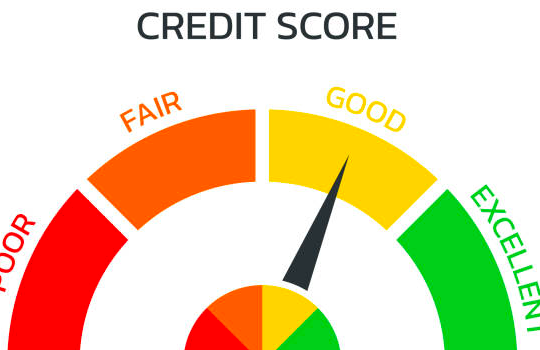Credit cards have revolutionised the way we make purchases and manage our finances. With just a swipe or a click, we can buy anything from groceries to electronics to travel tickets. But while credit cards offer us convenience and flexibility, they also come with certain risks and responsibilities. One of the most important aspects of credit card usage is understanding how it affects our credit score and other financial transactions. With the help of information discussed in this blog, we’ll explore the impact of credit card usage on your credit score and other financial aspects of your life.
How Credit Card Usage Affect Your Credit Score?
Your credit score is a three-digit number that represents your creditworthiness and is calculated based on your credit history. It plays a critical role in determining your ability to secure loans and credit cards and the interest rates you’ll be charged. Here are some ways in which credit card usage can impact your credit score:
Payment history
Making timely payments on your credit cards is crucial for maintaining a good credit score. Late or missed payments can significantly lower your score, while consistent, on-time payments can help improve it. If you’re struggling to make payments, consider consolidating your debt or negotiating a lower interest rate with your creditors.
Credit utilisation ratio
Keeping your credit utilisation ratio low (ideally below 30%) is important for maintaining a good credit score. This ratio is calculated by dividing the amount of credit you’ve used by the total credit limit on your card(s). To reduce your credit utilisation ratio, try to pay off your balances in full each month or make larger payments to decrease your outstanding balance.
Length of credit history
A longer credit history can positively impact your credit score, so it’s essential to maintain old accounts and avoid closing them unnecessarily. Consider keeping your oldest credit card active and using it sparingly to keep the account alive. Additionally, avoid opening too many new credit accounts in a short period, as this can negatively affect your credit score.
Types of credit used
A diverse mix of different types of credit (e.g., credit cards, personal loans, mortgages) can help improve your credit score. This demonstrates your ability to manage various types of credit responsibly and shows lenders that you’re capable of handling different payment schedules and interest rates. However, be cautious when applying for new credit, as excessive applications can harm your score.
New credit
Applying for too many new credit cards or loans in a short period can hurt your credit score due to the hard inquiry on your credit report. Only apply for credit when necessary, and space out your applications over time to minimise the impact on your score. Additionally, be mindful of credit card interest rates when selecting a new credit card, as a lower interest rate can save you money in the long run.
How Credit Card Usage Affects Other Financial Transactions?
Credit card usage doesn’t just impact your credit score; it can also influence other financial aspects of your life. Here’s a list showing how credit card usage can affect other financial transactions:
- Loan eligibility: A good credit score can increase your chances of getting approved for loans and lower interest rates, making it cheaper to borrow money. Whether you’re looking to finance a car, home, or personal project, a strong credit history can save you money in interest over the life of the loan.
- Employment screening: Some employers may conduct credit checks during hiring, particularly for jobs involving financial responsibility or sensitive information. While a poor credit score won’t necessarily disqualify you from a job opportunity, it’s essential to maintain a clean credit history to avoid any potential red flags.
- Insurance premiums: In some cases, insurance companies use credit scores to determine policy premiums, so a higher credit score could lead to lower premiums. This is because insurers view individuals with good credit habits as less likely to file claims or engage in risky behaviour. By maintaining a good credit score, you may be able to save money on auto, home, or life insurance policies.
- Mobile phone plans: Some mobile service providers may check your credit score before approving a new plan or device financing. If you have a poor credit score, you may be required to provide a security deposit or be denied access to certain plans or devices.
- Utility deposits: Utility companies might require a security deposit if you don’t have an established credit history or have a low credit score. This deposit serves as collateral to ensure you’ll pay your utility bills on time. By maintaining a good credit score, you can avoid paying unnecessary deposits and save money upfront.
- Travel: When applying for a visa or entering certain countries, immigration authorities may review your credit history to assess your financial stability. A good credit score can demonstrate your reliability and financial responsibility, increasing your chances of being granted entry or a visa.
- Business loans: Entrepreneurs may struggle to obtain business loans or lines of credit if their credit score is poor. Banks and lenders view small business owners with good credit histories as more likely to repay loans on time and manage their finances effectively. Before applying for a business loan, improve your credit score to increase your chances of approval.
Wrapping Up
Maintaining a good credit score is essential for financial health and success. By understanding the factors that affect your credit score and taking steps to improve it, you can unlock access to better loan terms, lower interest rates, and increased financial flexibility. This is where leading banking services providers step in by offering a range of credit products and services designed to help customers build and maintain excellent credit.

Krishna Murthy is the senior publisher at Trickyfinance. Krishna Murthy was one of the brilliant students during his college days. He completed his education in MBA (Master of Business Administration), and he is currently managing the all workload for sharing the best banking information over the internet. The main purpose of starting Tricky Finance is to provide all the precious information related to businesses and the banks to his readers.




